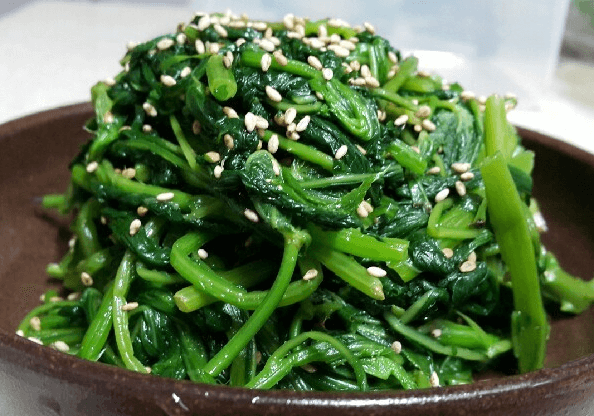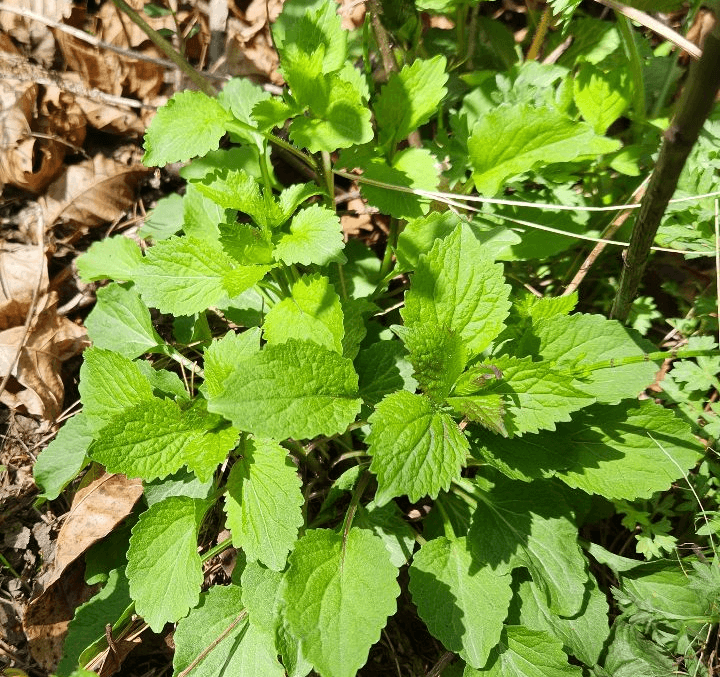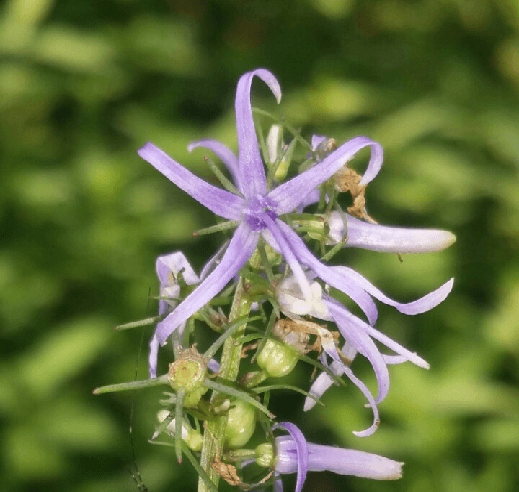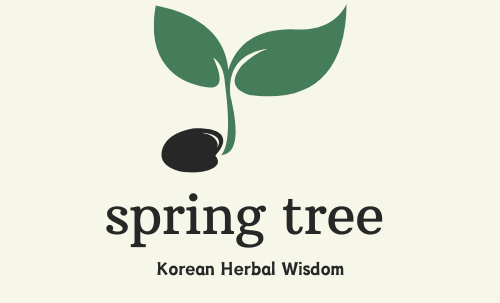
“Explore the refreshing and crisp taste of Yeongaja (wild lettuce), a nutrient-rich wild herb perfect for adding a healthy twist to your spring meals. Packed with vitamins and fiber, it’s known for boosting digestion and immunity. Enjoy it fresh in salads, wraps, or as a side dish and experience the vibrant flavors of this traditional Korean delicacy.”
1. Health Benefits and Nutritional Value
Phyteuma sprouts (Phyteuma japonicum) are a wonderful gift from nature, packed with essential nutrients like vitamin C, vitamin A, iron, and fiber. These perennial wild greens grow best in low-lying mountain valleys where fallen leaves provide just the right conditions. They’re especially known for their health-boosting properties—vitamin C strengthens your immune system, while fiber helps with digestion and keeps your gut healthy.
For centuries, Phyteuma sprouts(영아자) have been used as a wrap vegetable, thanks to their nutty flavor that perfectly complements grilled meat and sauces. Plus, they’re not just tasty—they’re also loaded with vitamin A and iron, which can help improve skin health and prevent anemia. With their rich antioxidants, these sprouts also help fight cell damage and slow down the signs of aging by boosting your immune system.

Cooking Tips and Recipes
When it comes to Phyteuma sprouts(영아자), enjoying them raw is the way to go. Their fresh, tender leaves make for delicious wraps or salads, and their nutty flavor really shines when paired with soybean paste or red pepper paste. These sprouts offer a unique taste that’s different from lettuce, making them a favorite choice for wraps throughout history.
Wraps: Simply rinse the fresh Phyteuma leaves and use them as a wrap for grilled meat or sauce. The nutty flavor pairs beautifully with barbecued dishes, and the fiber helps with digestion, making it a great, healthy addition to your meals.
Salads: Phyteuma sprouts are often used raw in salads. Toss them with a bit of red pepper paste, sesame oil, and minced garlic for a refreshing, healthy side dish. This salad is light and low in calories but packed with vitamin C and fiber, which help support your immune system and keep you feeling energized.
Seasoned side dish: Another great way to enjoy Phyteuma sprouts is by lightly seasoning them. Toss the sprouts with soy sauce, sesame oil, and spices to make a crunchy, flavorful side dish. You’ll be getting a good dose of vitamin A and fiber, which are great for eye health and digestion. Plus, vitamin C adds an extra boost to your immune system.
Harvesting Time and Methods
The best time to harvest Phyteuma sprouts is between May and June, when the young leaves are at their freshest and most tender—just perfect for wraps or salads. These sprouts thrive in mountain valleys with plenty of fallen leaves, and their oval-shaped leaves grow to about 5–12 cm long and 2.5–4 cm wide, packed with vitamin C, vitamin A, and iron.
When harvesting, gently pluck the young leaves by hand. Avoid picking older leaves as they can be tougher. The tender, young leaves are ideal for raw dishes and offer a wealth of natural nutrients without the need for fertilizers or pesticides—they’re as natural and organic as it gets!

Storage and Preservation Tips
For the best flavor and nutrition, Phyteuma sprouts are best eaten fresh. However, if you need to store them for a short time, refrigeration is the way to go. Place the harvested young leaves in an airtight container and pop them in the fridge to keep their vitamin C and fiber content intact for a few days.
If you’ve harvested a larger batch, you can lightly blanch the sprouts and freeze them to preserve their freshness. Blanching helps retain the vitamin C and fiber, so when you’re ready to use them later in salads or wraps, they’ll still be as nutritious as ever. You can also pickle them to create a tangy side dish that lasts longer while still providing the health benefits of fresh leaves.
Phyteuma sprouts have long been cherished for their nutty flavor, tender texture, and rich nutritional value. With their abundance of vitamin C, vitamin A, fiber, and iron, these sprouts can boost your immune system, improve skin health, and support digestive health. Whether you use them in wraps, salads, or as a seasoned side dish, they’re a simple yet delicious way to add a healthy touch to your meals. So, why not take advantage of this spring’s harvest and enjoy the fresh, vibrant flavors of Phyteuma sprouts?
